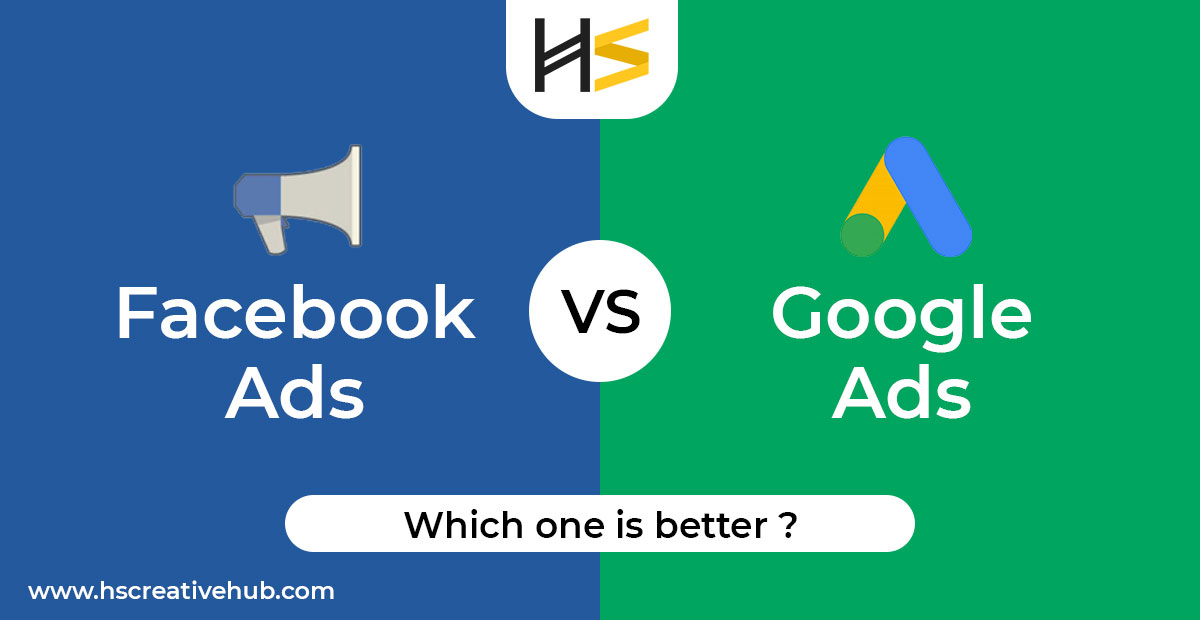In the fast-paced digital world, online advertising has become an indispensable tool for businesses to reach their target audience and drive growth. Among the giants of the online advertising realm, Facebook and Google stand out as the two powerhouses that dominate the landscape. Both platforms offer unique advantages and cater to different advertising objectives. In this blog, we’ll delve into the battle of Facebook Ads versus Google Ads, analyzing their strengths, weaknesses, and which one might be better suited for your specific marketing needs.
Facebook Ads: The Social Media Connection
Facebook, the largest social media platform globally, boasts over two billion active monthly users, making it an attractive avenue for advertisers to connect with a vast audience. Facebook Ads provide a diverse range of ad formats, including image ads, video ads, carousel ads, and more. Its targeting options are also extensive, allowing advertisers to narrow down their audience based on demographics, interests, behaviors, and even connections.
Advantages of Facebook Ads:
- Unparalleled Audience Targeting: With access to a wealth of user data, Facebook allows advertisers to precisely target their ads to specific user segments, resulting in highly relevant and personalized ads.
- Enhanced Engagement: As a social platform, Facebook encourages engagement, enabling businesses to foster interactions, build communities, and increase brand loyalty.
- Cost-Effective for Awareness: Facebook is excellent for creating brand awareness campaigns since it tends to be more budget-friendly than Google Ads for reaching a broader audience.
Google Ads: The Search Engine Giant
Google, the world’s most popular search engine, processes billions of search queries daily. Google Ads, formerly known as Google AdWords, empowers businesses to display ads on its search engine results pages (SERPs) and partner websites through its vast advertising network. Unlike Facebook, Google Ads primarily focuses on search intent, displaying ads to users actively looking for specific products or services.
Advantages of Google Ads:
- Intent-Driven Targeting: Google Ads excels in capturing users with high intent, as ads are triggered by search queries related to a product or service, making it highly effective for conversions.
- Expansive Reach: Google’s advertising network spans across millions of websites and apps, giving advertisers the potential to reach users on various platforms beyond the search engine.
- Measurable ROI: With robust analytics and conversion tracking, Google Ads enables businesses to measure the direct impact of their ad spend and optimize campaigns for better returns.
Which One Is Better?
Determining whether Facebook Ads or Google Ads is better depends on your specific advertising objectives and target audience. Here’s a brief breakdown:
Choose Facebook Ads If:
- Your primary goal is to build brand awareness and engage with your audience on a social level.
- You have visually appealing content that can captivate users within a social media environment.
- Your product or service appeals to a broad demographic, and precise intent-based targeting isn’t crucial.
Choose Google Ads If:
- You aim to capture users with high intent, as they actively search for products or services similar to what you offer.
- Your focus is on driving conversions and achieving measurable results.
- You want to take advantage of a vast advertising network that extends beyond the search engine itself.
Conclusion:
In the end, there is no definitive answer to which platform is better, as both Facebook Ads and Google Ads possess unique strengths that cater to different advertising objectives. To make the most of your marketing efforts, consider leveraging both platforms strategically based on your campaign goals and target audience. Integrating the power of Facebook Ads for brand awareness and engagement with Google Ads’ intent-based targeting for conversions can create a potent advertising combination.
In the dynamic landscape of online advertising, staying flexible, monitoring results, and adapting your strategies accordingly will be the key to unlocking success and maximizing your ROI.

